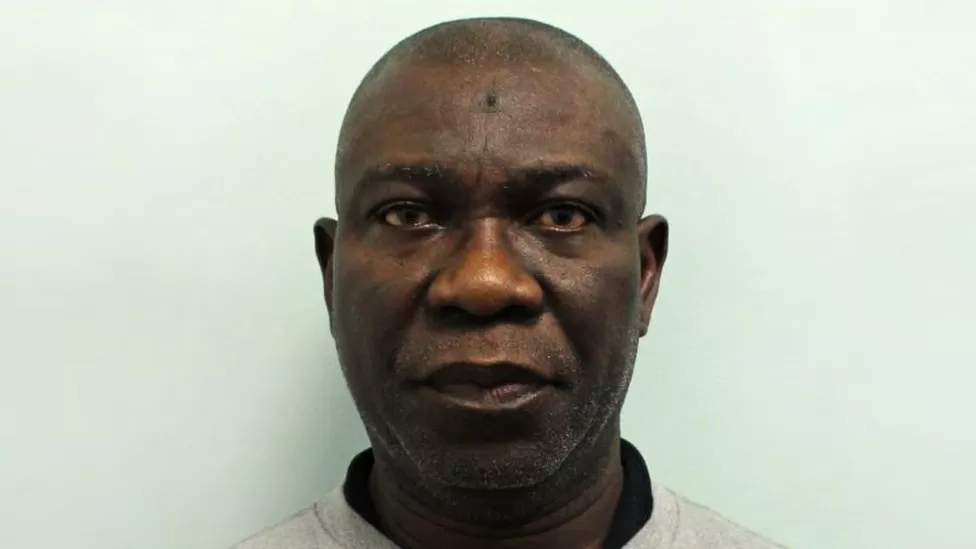A wealthy Nigerian politician, his wife and their “middleman” have been jailed for an organ-trafficking plot, after bringing a man to the UK from Lagos.
Senator Ike Ekweremadu, 60, and his wife Beatrice, 56, wanted a new kidney for their 25-year-old daughter Sonia, the Old Bailey heard.
The pair and Dr Obinna Obeta, 50, were previously convicted of conspiring to exploit the man.
It is said to be the first such case under modern slavery laws.
Ike Ekweremadu, who was described by the judge as the “driving force throughout”, was sentenced to nine years and eight months in prison.
Dr Obeta was sentenced to 10 years after the judge found he had targeted the potential donor who was young, poor and vulnerable.
Beatrice Ekweremadu was jailed for four years and six months due to her more limited involvement.
Their victim, a poor street trader in Lagos, was brought to the UK to provide a kidney for the Ekweremadus’ daughter.
He fled in fear of his life and walked into a police station exactly a year ago to report what had happened after the Royal Free Hospital called a halt to the private £80,000 procedure.
“Middleman” Dr Obinna Obeta and the senator’s wife, Beatrice, were also found guilty at a trial that concluded in March
Speaking of the way the case is being seen in the Ekweremadus’ homeland, Nigeria-based BBC journalist Nduka Orjinmo says people are used to seeing the rich and powerful having it their own way in a country where laws are flagrantly flouted.
While some have expressed feelings of sympathy for a father trying to help his sick daughter, he says many are satisfied that a powerful politician who heartlessly exploited a poor street hawker is facing justice.
‘My body is not for sale’
During a televised sentence hearing, Mr Justice Johnson recognised Ike Ekweremadu’s “substantial fall from grace”.
He described the politician as someone of high office with multiple properties, domestic staff, maids, chefs and drivers, compared with the victim who could not afford a £25 ticket to travel to Abuja.
Obeta, he said, had lied to doctors and falsely claimed the young potential donor was a cousin of the senator’s daughter who urgently needed a transplant. The three had left the potential donor facing a “substantial and long term impact on his daily life”, he said.
“People-trafficking across international borders for the harvesting of human organs is a form of slavery,” the judge added.
Sonia Ekweremadu was cleared of wrongdoing and watched her parents being sentenced from the public gallery
In a victim personal statement, the 21-year-old Nigerian market trader, who cannot be named for legal reasons, told the court he used to “pray every day” to be given the opportunity to come to the UK to work or study.
He said to “make it happen” he agreed to medical tests in Lagos and meetings with doctors in London, believing they were required for his UK visa during the Covid pandemic.
The 21-year-old said he only realised what was planned when he met doctors at the Royal Free Hospital in London who began discussing a kidney transplant.
He told the court he would not had have agreed to it, adding: “My body is not for sale.”
The victim is now being helped by a charity in the UK, according to his lawyer in Nigeria.
In his statement the 21-year-old said he “can’t think about going home to Nigeria”, as “these people are extremely powerful and I worry for my safety”.
He is also said to have refused to apply for financial compensation from the Ekweremadu family, telling a detective he “did not need or want anything from the bad people”.
‘The law is clear’
Lynette Woodrow, deputy chief crown prosecutor and national modern slavery lead at the Crown Prosecution Service (CPS), said it had been “our first conviction for trafficking for the purposes of organ removal in England and Wales”.
She said it highlighted an important legal principle which made it irrelevant whether the trafficking victim knew he was coming to the UK to provide a kidney.
“With all trafficking offences,” Ms Woodrow said, “the consent of the person trafficked is no defence. The law is clear; you cannot consent to your own exploitation.”
In the wake of the case the Metropolitan Police and CPS have been working with hospitals and the Human Tissue Authority about actions they should take when concerns about organ trafficking are raised.
